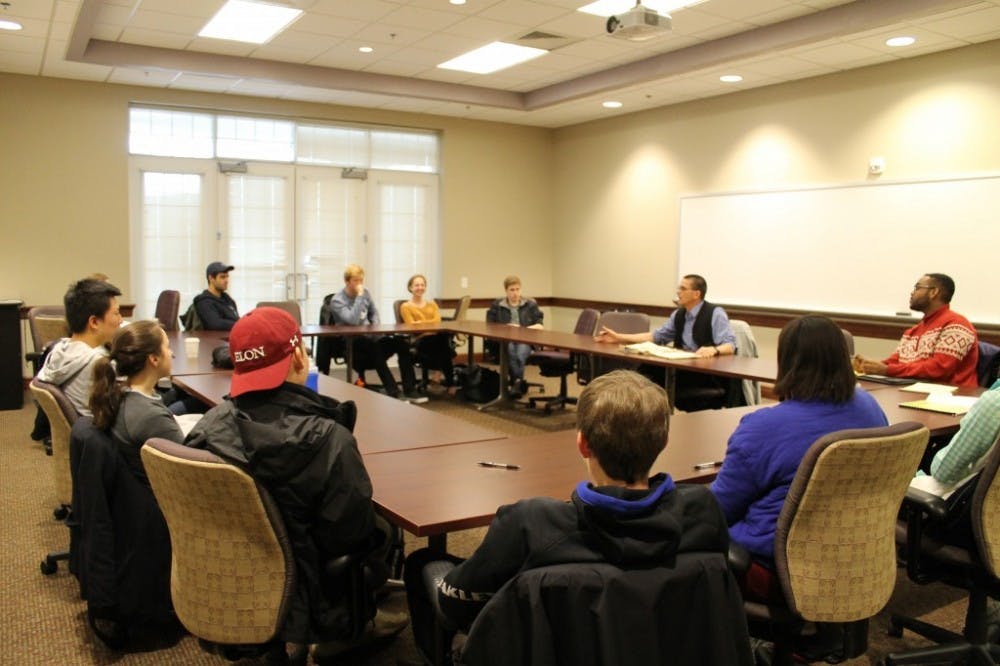Robert Jensen, professor at the University of Texas and author of “The Heart of Whiteness: Confronting Race, Racism and White Privilege,” visited Elon University Monday to lead “Addressing Institutionalized Racism.” The on-campus workshop in Alamance Building was part of the Martin Luther King, Jr. Beloved Community Celebration — a weeklong commemoration of Dr. Martin Luther King, Jr.’s life.
Jensen, a self-proclaimed radical feminist and controversial advocate for disempowered groups, argued the United States is a hierarchical society, a white supremacy and a patriarchy fundamentally hindered by capitalism.
“If you look at the redistribution of wealth, it’s still a largely white supremacist society,” Jensen said. “It seems like we’re not as committed to equality as we thought.”
While Jensen acknowledged that many Americans embrace polite conversations about diversity, he claimed they avoid difficult questions related to racial inequality, which makes significant cultural changes more challenging to create. He said he believes while many white Americans would never publicly state racist views, they often engage in “backstage” racism among trusted company.
He listed three primary forms of racial discrimination: institutionalized, overt and unconscious.
Although Jensen recognized progress toward racial equality and greater professional opportunities since the Civil Rights Movement, he argued racism is instilled in American society at an institutional level. The cornerstone of Jensen’s argument lies in the United States’ public school system.
“Even though overt racism is illegal… it’s still true that this is a society of segregated housing,” Jensen said. “Non-white America isn’t doing as well as white America.”
Looking at the way public education is funded, Jensen found a disparity between white and black students’ educations. Since public schools are funded by local property taxes, wealthier areas have more funding for public schools.
What’s the solution? Many students attending the event agreed with Jensen: a fair alternative would be to combine all property taxes from each state and then distribute the funding evenly among its districts. Other students found this idea unfeasible. They argued that such an approach doesn’t follow the U.S. capitalist model.
Students of many races and ethnicities engaged in the active discussion on racism.
“It helps to hear what people of the opposite race have to say, because it helps advance the discussion,” said freshman Alonzo Cee.
Jensen’s academic credentials as a tenured professor helped reinforce ideas some students had previously considered.
“It confirmed some of the things I have been thinking,” said junior Alex Bohannon. “It, overall, was a really good learning experience for me.”
Cee said he benefitted from the discussion and left the lecture feeling encouraged that people participated.
“A lot of good points were brought up that will have to be discussed — not just in a small group setting, but with peers,” Cee said. “[Student participation] reassures me that people actually care.”


